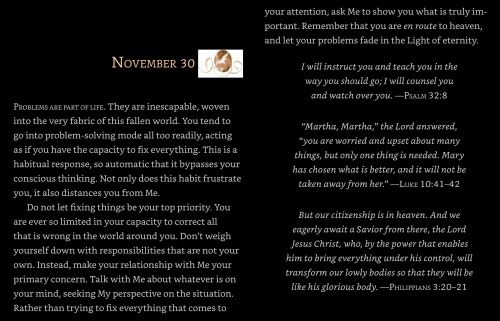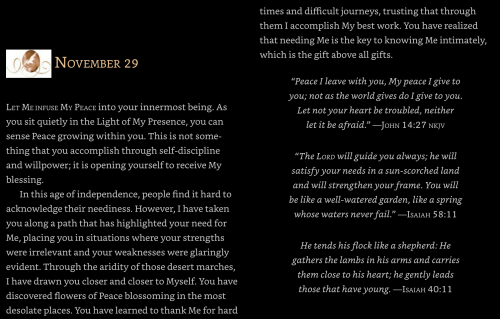Monday, November 30, 2020
In his book We Make the Road by Walking, my friend and colleague Brian McLaren describes some of the Spirit-led movements that shaped Judaism from the time of Moses, and sustained Christianity. We must remember that such movements are not simply a past occurrence, but something in which we are called to participate in our own time.
I believe that the Spirit of God works everywhere to bring and restore aliveness—through individuals, communities, institutions, and movements. Movements play a special role. In the biblical story [of Exodus], for example, Moses led a movement of liberation among oppressed slaves. They left an oppressive economy, journeyed through the wilderness, and entered a promised land where they hoped to pursue aliveness in freedom and peace. Centuries after that, the Hebrew prophets launched a series of movements based on a dream of a promised time . . . a time of justice when swords and spears, instruments of death, would be turned into plowshares and pruning hooks, instruments of aliveness [Isaiah 2:4; Micah 4:3]. Then came John the Baptist, a bold and nonviolent movement leader who dared to challenge the establishment of his day and call people to a movement of radical social and spiritual rethinking. . . .
When a young man named Jesus came to affiliate with John’s movement through baptism, John said, “There he is! He is the one!” Under Jesus’ leadership, the movement grew and expanded in unprecedented ways. . . . It rose again through a new generation of leaders like James, Peter, John, and Paul, who were full of the Spirit of Jesus. They created learning circles in which activists were trained to extend the movement locally, regionally, and globally. Wherever activists in this movement went, the Spirit of Jesus was alive in them, fomenting change and inspiring true aliveness. . . .
[Christianity] began as a revolutionary nonviolent movement promoting a new kind of aliveness on the margins of society. . . . It claimed that everyone, not just an elite few, had God-given gifts to use for the common good. It exposed a system based on domination, privilege, and violence and proclaimed in its place a vision of mutual service, mutual responsibility, and peaceable neighborliness. It put people above profit, and made the audacious claim that the Earth belonged not to rich tycoons or powerful politicians, but to the Creator who loves every sparrow in the trees and every wildflower in the field. It was a peace movement, a love movement, a joy movement, a justice movement, an integrity movement, an aliveness movement.

Spirituality and Social Movements
A Spirit-Led Christianity
Sunday, November 29, 2020
First Sunday of Advent
The God who became flesh in Jesus is the hidden God of whom the prophets speak to us. Jesus shows himself to be such precisely in the measure that he is present via those who are the absent, anonymous people of history, those who are not the controllers of history, namely, the mighty, the socially acceptable, “the wise and the learned” (Matthew 11:25). —Gustavo Gutiérrez
Much of what Jesus said seems to have been understood and taken to heart during the first several hundred years after his death and resurrection. Before the imperial edict of 313 that pushed Christians to the top and the center of the Roman Empire, values like nonparticipation in war, simple living, and love of enemies were common within the faithful community. The church at that point was still countercultural and non-imperial—a social movement for the reign of God. After 313 we lost that free position. Christianity increasingly accepted, and even defended, the dominant social order, especially concerning war, money, and authority.
If we look at texts in the hundred years preceding Emperor Constantine’s edict, it was unthinkable that a Christian would fight in the army. The army was killing believers. Christians were on the bottom but, by the year 400, the entire army had become Christian, and was now killing the pagans. In a two-hundred-year period, Christians went from being complete outsiders to directing the inside! Once Christians joined the inside group, they had to defend their power. There’s not much room for any talk of the cross or powerlessness anymore.
Official Christianity slowly lost its free and alternative vantage point, which is probably why what we now call the movements of “religious life” began and flourished in the desert after 313. People went to the edges of the church and took vows of poverty, living in satellites that became “little churches,” without ever formally leaving the big Church.
Francis and Clare of Assisi formed their own “social movement” through a foundational agenda for justice. They lived in humility and simplicity outside the dominant social, political, and religious systems. For the Franciscans who followed in their footsteps, the first priority was living the spiritual life in a visible way that shouted Gospel love! Their life, close to the bottom, was where they hoped to learn the science of love. Their small communities were to be patterns for living and disseminating the transformative power of the Gospel.
Imperial Christianity is always about power. It seldom teaches about nonviolence, forgiveness, inclusion, simplicity, mercy, love, compassion, or understanding in a primary way. Yet Spirit-led movements within Christianity have flourished and continued to emphasize the values that defined the early Church and made it so threatening to the social order. I believe that any future church will be led by the Spirit back to those foundational values, making it a much flatter and more inclusive community. The examples of non-imperial movements within Christianity strive not towards protecting their own power and influence, but toward supporting the supreme work of love flowing into the world.
